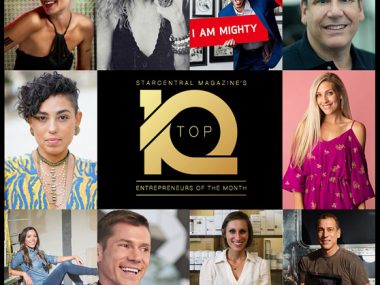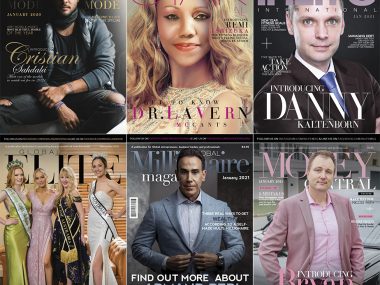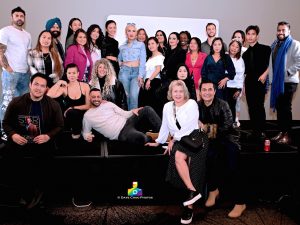Glen Muñoz is a singer, songwriter, and musician who owns and operates a boutique recording studio in Lower Manhattan. He also oversees a podcast production and distribution company and the owner and executive producer at Concordia Sound.
At Concordia Sound, they have partnered with artists ranging from Grammy-Award winners to up-and-coming garage bands . . . from platinum-selling artists to cutting-edge indie-acts . . . all of them are uniquely talented as songwriters, singers, and musicians. At Concordia, they also collaborate on audio and sound design with multimedia storytellers like filmmakers, podcasters, advertising agencies, Fortune 100 brands, and global NGOs.
The Covid crisis and the need for social distancing resulted in a pivot for Concordia Sound over the summer. They refocused the business on putting money into the pockets of closed venues and the musicians that typically work there. They do this via safe, innovative, immersive, hi-fidelity, hi-definition, interactive, remotely-produced, live-stream, events performed by artists located anywhere and delivered to ticketed fans everywhere. Our hour-long shows have been averaging between $3,000 and $5,000 in ticket sales . . . with their largest show generating over $20,000 in ticket sales.
StarCentral Magazine recently caught up with Glen to discuss his journey in the music industry and here’s what went down:
Could you please tell our readers a brief background about yourself and how you started your business?
I am innately curious, hungry to learn, and driven to manifest positive change – which are essential traits for any entrepreneur. This mindset is reflected in my career choices.
My first job out of college was in Advertising in New York City. My job was managing teams that developed and implemented innovative growth strategies for brands ranging from Sony to T-mobile to Michelin.
I subsequently jumped into the early days of Web 2.0 to help a massive ISP change its business model 180 degrees. We ultimately propelled the org from $600.0 million USD to $2.0 billion USD in annual advertising revenue.
All the while, I fed my artistic side-hustle at night and on weekends. I was regularly writing music, recording in the studio, and playing live shows up and down the east coast of the U.S.
So – as my time in Web 2.0 was winding down, I realized that it was time to become a full-time entrepreneur and bring those two worlds together.
Over the course of a few years, I launched four companies:
– Glen Muñoz Music LLLC (to handle my personal music performance and publishing royalties)
– Due South Studios (a boutique recording studio in SoHo, NYC)
– Concordia Sound (an in-studio and live-stream production company)
– Pod Pro Audio (a podcast production and distribution company)
What are you currently doing to maintain/grow your business?
Given the impact of COVID-19, I was forced to identify services that could be provided safely (socially distanced). As a result, my focus has been on Pro Pro Audio and the ticketed, live-stream productions by Concordia Sound – both of which can be operated remotely. These businesses have grown rapidly in the last year – mainly through positive word-of-mouth from my network and satisfied clients.
What social media platforms do you usually use to increase your brand’s awareness?
While my businesses have a presence on a handful of social media platforms (focused mainly on LinkedIn and Instagram), social media is not a high priority within my overall marketing plan.
My main channel for growing my brands is the strong network of industry professionals that I have built over the years.
What is your experience with paid advertising, like PPC or sponsored content campaigns? Does it work?
Earlier in my career, I operated in the world of paid advertising – on behalf of advertising agencies, brand advertisers, direct-marketing advertisers, and – ultimately – digital publishers. As a result, I am very familiar with the entire ecosystem and understand how it can be leveraged effectively.
For my businesses and brands – however – it has not been a priority. My main focus has been my flesh-and-blood network of contacts and building out SEO-friendly websites.
What is your main tactic when it comes to making more people aware of your brand and engaging your customers? How did your business stand out?
Making my brands stand out is fairly simple – having first put in the needed legwork. Before launching any of my businesses, I first made sure there was a demand for what I planned to provide AND that my offering was in some way unique. Once those were defined, my messaging naturally flow from those.
From there – I built out SEO-friendly websites that communicate those services and unique value propositions while also regularly communicating these services and values to my network.
What form of marketing has worked well for your business throughout the years?
There are countless avenues for spreading your marketing message – and in the digital age, they continue to proliferate. Still – the core of my successful marketing efforts is my happy clients.
Return customers and referrals represent – by far – the largest portion of my client base.
What is the toughest decision you had to make in the last few months?
When the pandemic hit, countless working musicians and the live-music venues that host them couldn’t pay their bills. As a result, I pivoted “Concordia Sound” to allow those musicians and live-music venues to produce hi-fi, hi-def, ticketed, live-stream shows for ticketed fans around the world.
I am pleased that this pivot is allowing musicians and venues to generate revenue and pay their bills. Still . . . with the overwhelming demand for the service, we have had to – at times – decline requests for the production service. That’s heartbreaking.
We’re working hard to scale up so that everyone that wants to live-stream a ticketed show can do so. Stay tuned.
What money mistakes have you made along the way that others can learn from (or something you’d do differently)?
It’s my nature to want things to be as perfect as possible before launching. That mindset has occasionally cost me time and money as I iterate on those things.
I have since learned that there are times when “good enough is good enough”, I need to go “live” as soon as possible and then make adjustments as I go.
What new business would you love to start?
I grew up participating in choir, dance, orchestra, jazz band, and theater – all through my local public schools.
Unfortunately, the budgets for the arts in US public schools have been dramatically cut back in the last 20 years.
I would love to start a business with dual focuses:
1) drive the effort to return proper funding for the arts in public schools and
2) provide after-school programs for kids interested in the arts.
If you could go back in a time machine to the time when you were just getting started, what would you do differently?
I’ve long prided myself on being self-sufficient – but as with anything, too much of a good thing can be bad.
If I knew then what I know know, I would have been more willing to acknowledge where I was stuck and would have relied more heavily on my network of willing contacts and my mentors to help me get unstuck.
What is the best advice you have ever been given?
“Surround yourself with good people . . . people that are honest and curious.”
After all – whether these are employees, friends, or business contacts – these are the sort of people that are best positioned to help me identify what’s working & what’s not, help me to learn & grow, and will also learn & grow along with me as I develop my businesses.
What advice would you give to a newbie Entrepreneur setting up their first business?
My advice to any newbie entrepreneur is three-fold:
– to help you maintain balance while making constant progress, it’s important to thoughtfully develop a long-term plan that is broken down into addressable steps with specific, realistic deadlines
– don’t try to accomplish everything in one day, one week, or one month. Lasting success comes through slow and steady work rather than brief but brilliant flashes of productivity.
– be humble, be open to new knowledge and be prepared to pivot. Most successful entrepreneurs – in order to succeed – ended up building a business that is different from the one they originally envisioned















